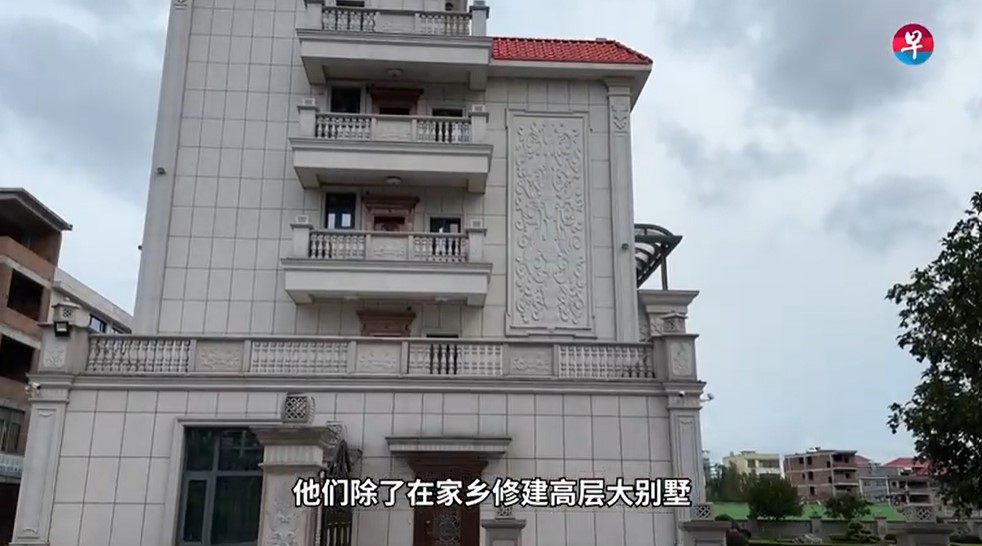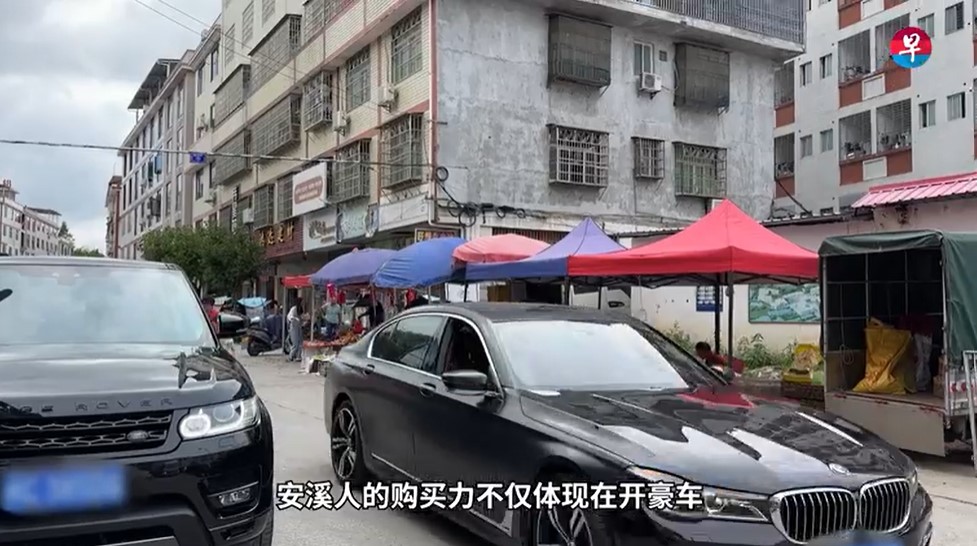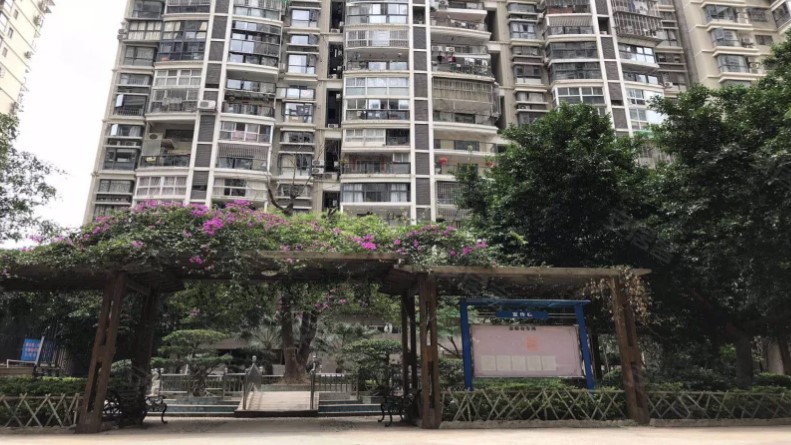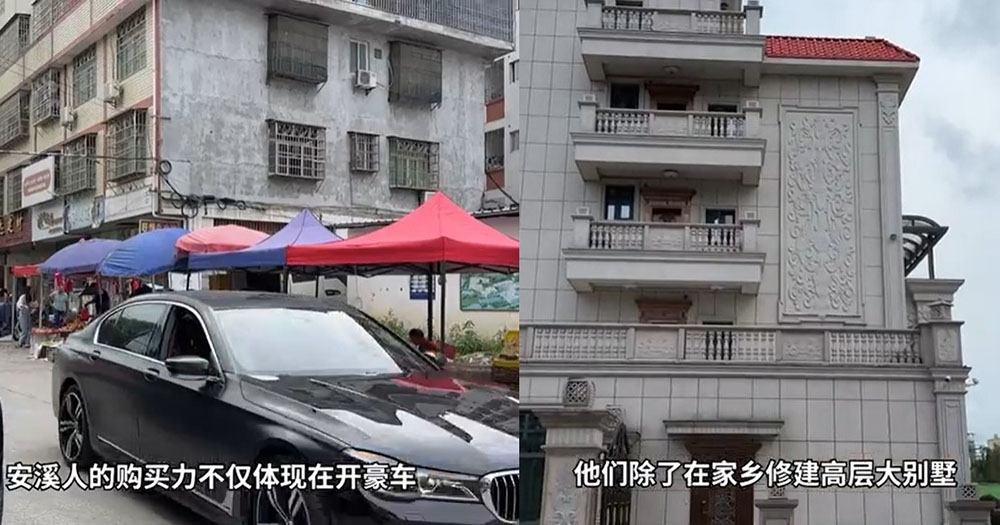Following the arrest of nine men and one woman and the seizing of more than S$1 billion worth of properties, cars, luxury goods, and cash by the Singapore Police Force on Aug. 16, details have emerged about how the group belonged to a gang hailing from Fujian, China.
Colloquially called the "Fujian Gang", more details of their background have been uncovered by Lianhe Zaobao, which published an article and video after a reporter headed down to their hometown, Anxi County in southern Fujian, where at least half of the group reportedly hails from.
According to Zaobao, Anxi County is famous for the popular "Tie Guan Yin" Chinese tea.
It has also since acquired a new reputation — "hometown of fraud".
A recent saying circulating in China goes like this:
“Nine out of ten people in Anxi are scammers, and the last one is a scammer-to-be.”
A seven-storey bungalow in the middle of a rundown village
Zaobao dug up the registered address of Chen Qingyuan, one of the 10 arrested during the island-wide raid.
Even though Chen is now a Cambodian national, his address is still registered to Anxi in China, specifically in a village called Nandou.
When the Zaobao reporter arrived in Nandou, she quickly noticed that the locals were very apprehensive of her.
She discovered that a young person like her was easily "the odd one out" as the village consists mostly of elderly and young children.
A local shop owner, who somehow opened up to her, said their village had not been doing well for a while, and many young people left to look for opportunities.
While she couldn't find Chen's exact address because the houses have "serious numbering issues", she found a bungalow "six to seven storeys high" with wall adornments "almost ten metres tall".
 Screenshot via Lianhe Zaobao
Screenshot via Lianhe Zaobao
She tried finding out who the house's owner was, but it was apparent the locals would not tell her.
The town from which China's phone call scams originated
One unnamed source familiar with the local situation told the Zaobao reporter that a township called Chang Keng, 2km away from Nandou, is widely believed to be the "source of China's phone call scams".
After her trip to Nandou, she swung by Chang Keng and found it to have similar dilapidated infrastructure.
She then stopped by a makeshift market, with stalls on both sides of the road set up for the Lunar New Year 7th month (also known as the Hungry Ghost Festival).
However, within 10 minutes, she observed four BMWs, two Mercedes and two Maseratis slowly driving through the narrow street of the makeshift market, with license plates from the nearby cities of Xiamen and Quanzhou.
She also noticed that there were multiple luxurious mansions throughout Chang Keng. The unnamed source explained to her that people from the town return to their hometown to build houses and invest in its businesses with their scam proceeds.
 Screenshot via Lianhe Zaobao
Screenshot via Lianhe Zaobao
Why is Anxi County well-known for fraud?
The same unnamed source told Zaobao that many wealthy people in Anxi County initially made their fortune through the "Tie Guan Yin" tea business.
However, after the tea business declined, more and more of the county's inhabitants turned to illegal activities such as operating phone scams or online gambling.
They even returned to their hometown to recruit more hands after achieving success.
An explanation from an official
In 2016, the then-Secretary of the Chinese Communist Party County Committee of Anxi claimed to local media that phone scams "started in Taiwan", and the Taiwanese scammers "asked their Anxi relatives to join them".
The then-Secretary added that the Anxi people decided to "start the business themselves" and, after achieving success, roped in more and more of their relatives and people from their hometown.
They claimed that out of the county's 1.2 million inhabitants, only around 3,000 are scammers.
According to Zaobao, following a recent crackdown by the Chinese authorities, many of Anxi's inhabitants who were engaged in such illegal activities fled abroad to Southeast Asian countries such as the Philippines, Myanmar and Cambodia.
Since 2022, Chinese authorities have also banned the people of Anxi from travelling to Thailand, Myanmar and Laos, the border regions of Yunnan and Guangxi, as well as eight other countries identified as having a "key relation" to fraudulent activities.
The Zaobao reporter noted that she saw a banner in Nandou village which read "Full efforts in combating phone scam crimes". She noted that there were also notices encouraging residents to report those that fled, offering RMB50,000 to RMB 100,000 as a reward.
Looking for the house of some of the other suspects
Other than Chen Qingyuan, the Zaobao reporter also looked for the houses of 42-year-old Turkish national Vang Shuming and 34-year-old Cypriot national Wang Dehai, both registered to be in the nearby city of Xiamen.
Zaobao said Vang Shuiming originated from Anxi, but his home address was listed at a luxury apartment complex in Xiamen called Nanhu Zhongshan (transliteration), where rooms cost RMB90,000 (S$17,000) per square metre.
 Photo via Lianjia website
Photo via Lianjia website
Meanwhile, Wang Dehai's address was listed at another luxury apartment complex called Jianfa Zhongyangwan (transliteration), which Zaobao said is one of the most expensive areas of real estate in Xiamen.
Prices at this apartment complex reportedly start at RMB50,000,000 (S$9,000,000) for apartments over 300 square metres and with a view of the sea.
 Photo via Lianjia website
Photo via Lianjia website
A private hire car driver told the Zaobao reporter that the area in which this apartment complex is located had been nicknamed "Anxi Bay" due to the large numbers of buyers who hail from Anxi.
Both Chen and Wang are wanted by the police in China.
In 2019, the public security bureau in Anxi in China's Fujian Province published a list of suspects wanted for various offences.
Chen's identification number was on the list.
Vang is wanted by the Chinese authorities for his involvement in an illegal gambling syndicate that was busted in May 2022.
His name was listed as one of nine people who fled abroad following the bust, according to the public security bureau in Zibo in China's Shandong province.
Anxi natives emphasise that most of them are legitimate people
When Lianhe Zaobao spoke to some natives in Anxi county about the recent arrest of the "Fujian Gang", a tea shop owner said the arrest was unsurprising and emphasised that many of the local people in Anxi are still running legitimate businesses.
Another Anxi native, a 22-year-old university student named Xiao Wang (transliteration), "clapped her hands in joy" when she heard about the arrests, hoping it would help her birthplace county shed its infamous reputation.
Xiao said she plans to help her family's tea business after graduating.
According to Xiao, when people find out that she is from Anxi, they become worried that she is out to cheat them.
"The scammers are the minority, while the rest of us from Anxi bear the price," she added.
Related stories:
Top screenshots from Lianhe Zaobao
If you like what you read, follow us on Facebook, Instagram, Twitter and Telegram to get the latest updates.



